Conxuro da Queimada
History
The Conxuro da Queimada is the reading of an ancient “spell” from the Galician tradition. Some say this dates back to Celtic times. It is believed to have begun when Paganism was widely practiced in Galicia (the final state along the Camino de Santiago to the remains of St. James).
We usually associate Celtic people with Scotland and Ireland. However, as early as 600 BC the Celtic tribe known as the Gallaeci arrived north of the Douro River. This began the modern-day state of Galicia, Spain. In fact, Galicia is considered the seventh Celtic nation along with Eire (Ireland), Kernow (Cornwall), Mannin (Isle of Man), Breizh (Brittany), Alba (Scotland) and Cymru (Wales).
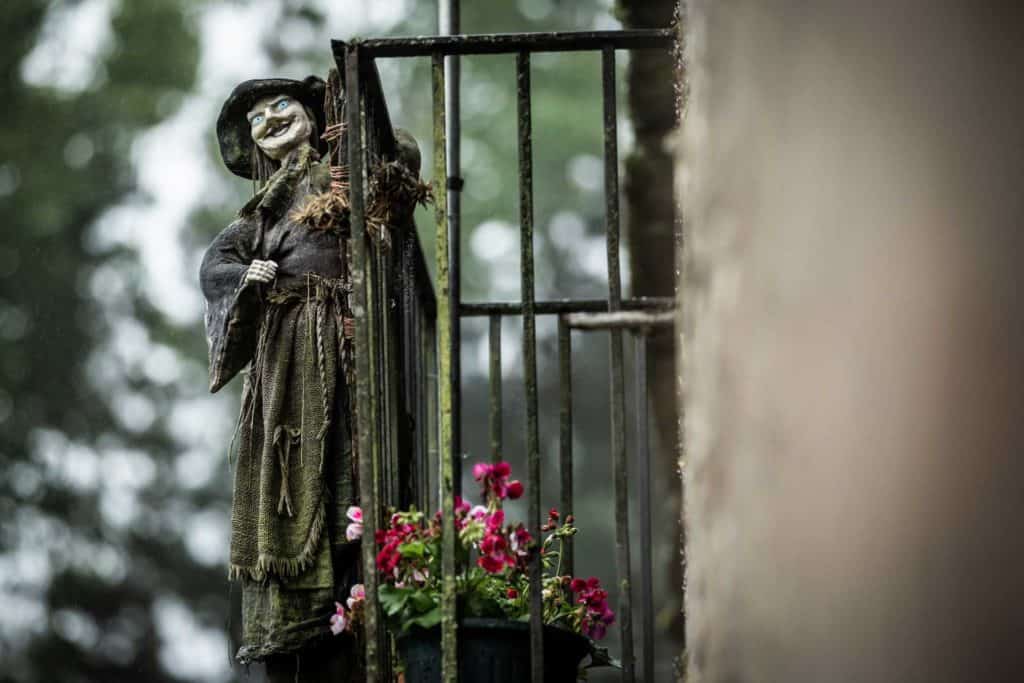
Witches along the Camino de Santiago
This rich Celtic culture is evident in many ways in Galicia. As you walk the Camino de Santiago you will see witches scattered along the trail. The Galician gaita or bagpipe music remains popular today. There also remains practice of traditional Pagan rituals (as the Queimada). And lastly, the Galician language consists of many words with Celtic origin.
Aguardiente
The Queimada would be prepared during the day in the family home, being cooked for hours. It was often a large pot with a hearty fire, which would also aid in heating the house during the cold times in Northwest Spain. In Galicia, the concoction consists of Aguardiente, directly translated to Fire Water, mixed with a combination of ingredients – sugar, lemon peel, coffee beans, cinnamon and apple.
Aguardiente, typically in Galicia, is obtained from the remains of the grapes after the wine would have been produced. The excessive parts of the grapes are fermented, before they are distilled, to produce this very strong alcohol. Aguardiente is a clear and colourless liquid. It typically contains 50% – 70% alcohol content. This is the main reason it is burned all day; to lose some of the alcohol!
On the Camino de Santiago
Aguardiente is still made traditionally in many villages across Galicia today. As you walk your Camino de Santiago, you will see Aguardiente with many different variations. After almost every main meal in Spain, you will be offered an Orujo, a strong liquor with the same base of Aguardiente, but flavoured with many different variations. However, there are three main types you will come across.
The bright yellow Orujo is called Hierbas. This is made with a variety of local herbs, only picked on the August full moon. The dark brown Orujo Licor Cafe is mixed with coffee. The white Orujo is called Crema as it is made with a touch of cream (tasting very much like Bailey’s). Spaniards will tell you Hierbas is medicinal and should be drank for all ailments. Especially for pilgrims needing to get to the end of a walking day!
The Meaning
The incantation is read out in front of the fiery Aguardiente and set alight creating a beautiful blue flame. The person leading the spell covers their face. Historically, s/he might have to say some very hurtful or shocking things (which were being thrown into the Queimada for good riddance) about the people in the village. It was best for that person to conceal their identity.
The idea of this ritual is to distance oneself from bad spirits and bring yourself closer to the good ones. This spell also did this for close friends and family, near and far. One would be encouraged to throw any negative thoughts, experience or idea into the pot during the spell. This would allow in the light of the good spirits to bring positivity into their lives. We suggest if you experience a Queimada along the Camino, to not only wish well for yourself and loved ones, but maybe wish those pesky blisters farewell!
The Spell
Below is the Conxuro da Queimada in the traditional Galician language:
Mouchos, curuxas, sapos e bruxas.
Demos, trasgos e diaños, espíritos das neboadas veigas.
Corvos, píntegas e meigas: feitizos das menciñeiras.
Podres cañotas furadas, fogar dos vermes e alimañas.
Lume das Santas Compañas, mal de ollo, negros meigallos, cheiro dos mortos, tronos e raios.
Ouveo do can, pregón da morte; fuciño do sátiro e pé do coello.
Pecadora lingua da mala muller casada cun home vello.
Averno de Satán e Belcebú, lume dos cadáveres ardentes, corpos mutilados dos indecentes,
peidos dos infernais cus, muxido da mar embravecida.
Falar dos gatos que andan á xaneira, guedella porca da cabra mal parida.
Con este fol levantarei as chamas deste lume que asemella ao do Inferno, e fuxirán as bruxas a cabalo das súas vasoiras,
índose bañar na Praia das areas gordas.
¡Oíde, oíde! os ruxidos que dan as que non poden deixar de queimarse no augardente quedando así purificadas.
E cando este beberaxe baixe polas nosas gorxas, quedaremos libres dos males da nosa alma e de todo embruxamento.
Forzas do ar, terra, mar e lume, a vós fago esta chamada:
se é verdade que tendes máis poder que a humana xente, eiquí e agora,
facede que os espíritos dos amigos que están fóra, participen con nós desta Queimada.
The Translation
Loosely translated into English, it goes something like this:
Owls, barn owls, toads and witches. Demons, goblins and devils, spirits of the misty vales.
Crows, salamanders and good witches, charms of the folk healer.
Rotten canes, home of worms and vermin.
Fire of the Holy Company, evil eye, black witchcraft, smell of the dead, thunder and lightning.
The howl of the dog, omen of death, maws of the satyr and rabbit´s foot.
Sinful tongue of the bad woman married to an old man.
Satan and Beelzebub’s Inferno, fire of the burning corpses, mutilated bodies of the indecent ones,
farts of the asses of doom, bellow of the enraged sea.
The cries of the cats in heat, dirty turf of the goat born wicked.
With this ladle I will raise the flames of this fire which looks like that from Hell,
and witches will flee, straddling their brooms, going to bathe in the beaches of the thick sands.
Hear! Hear the roars of those that cannot stop burning in the firewater, so becoming purified.
And when this drink goes down our throats, we will be free of the evil of our soul and of any witchcraft.
Forces of air, earth, sea and fire, to you I make this call:
If it’s true that you have more power than human people, then here and now,
make the spirits of the friends who are outside, take part with us in this Queimada.

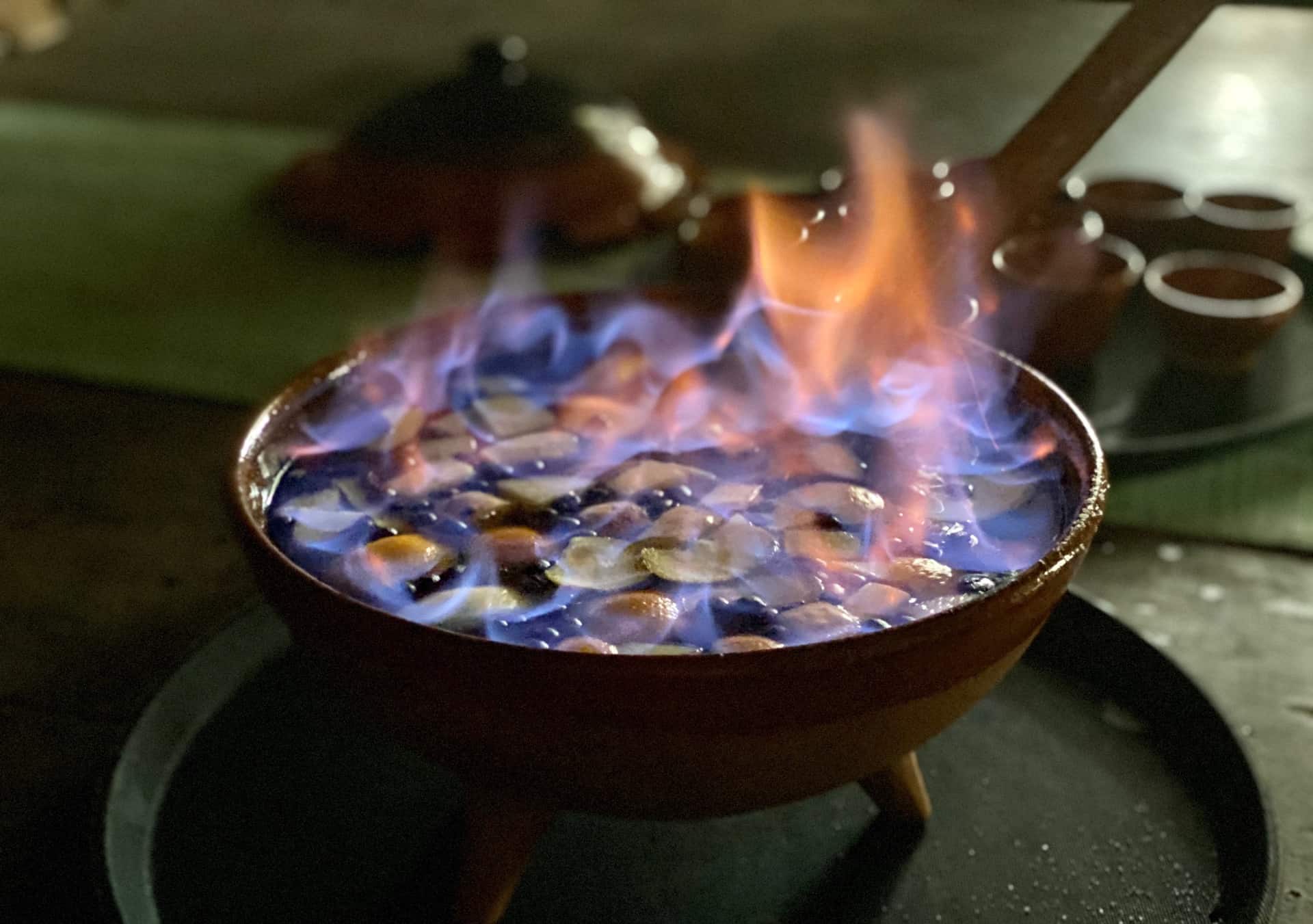
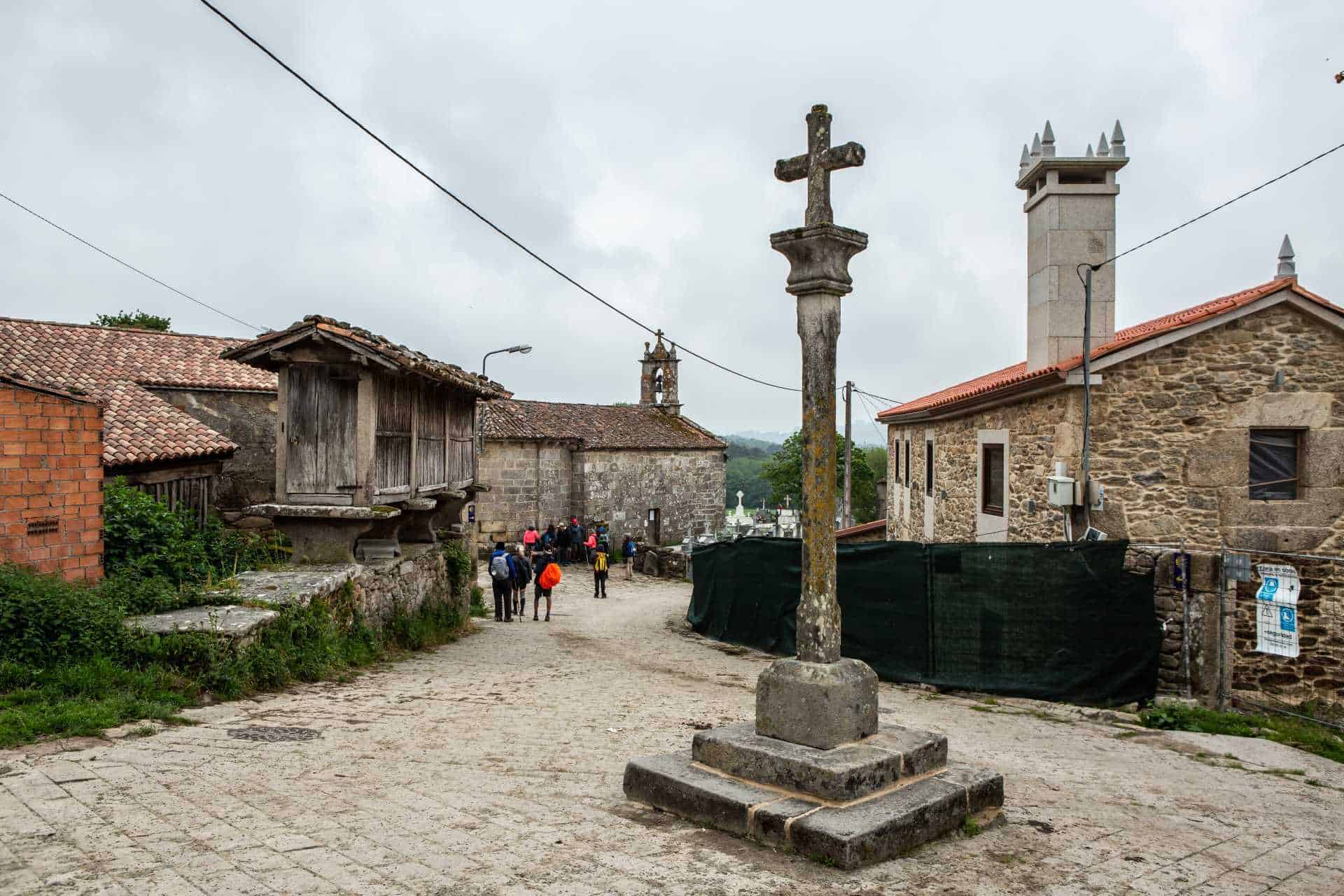
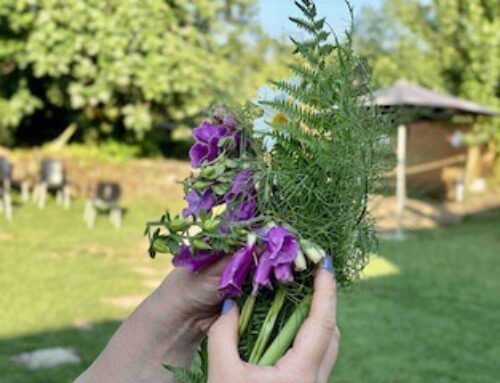
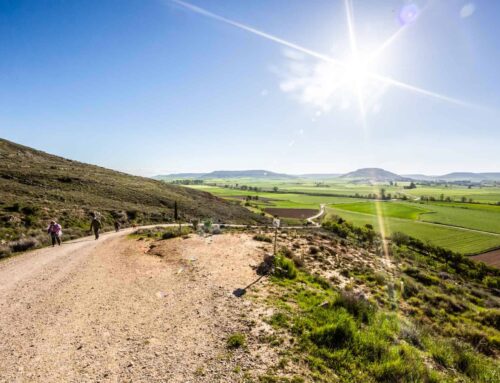
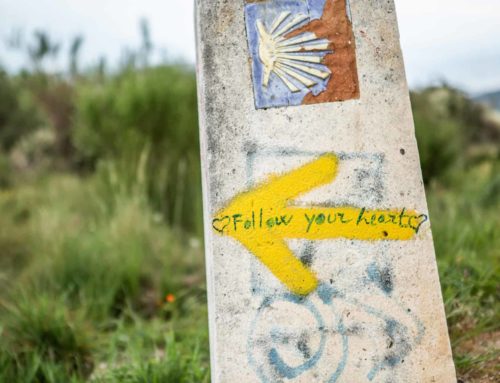
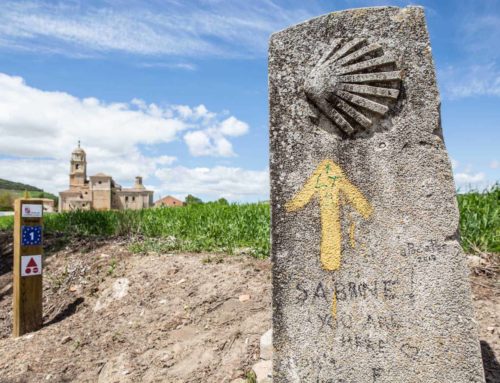
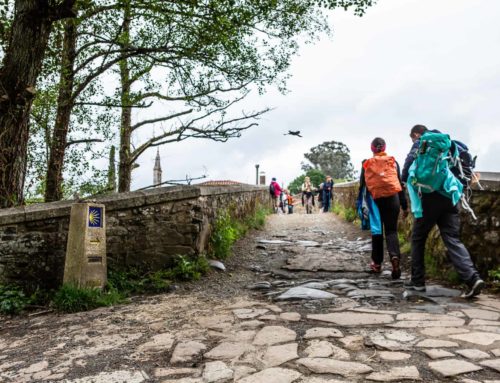
Leave A Comment